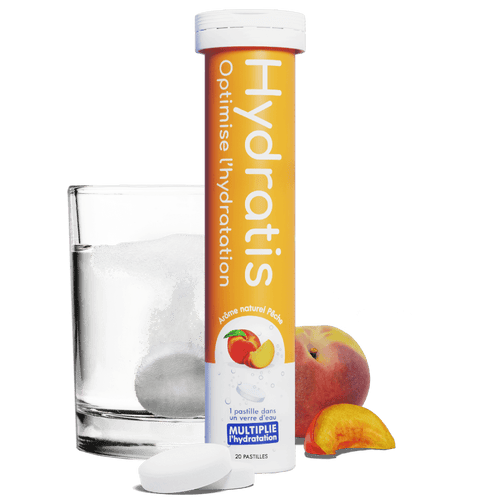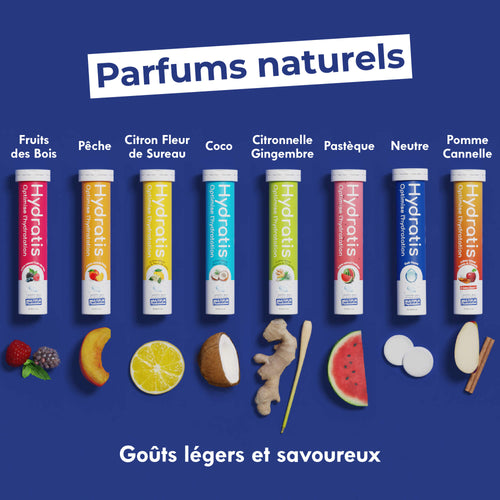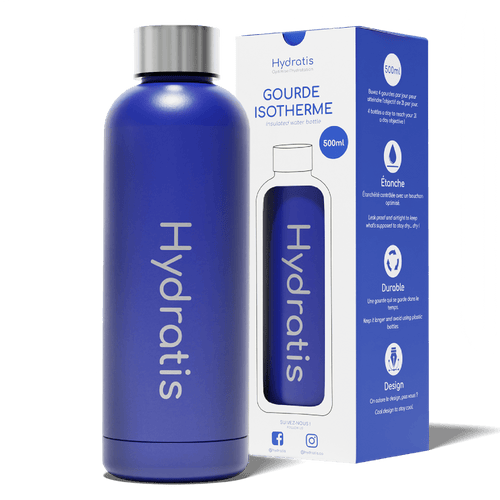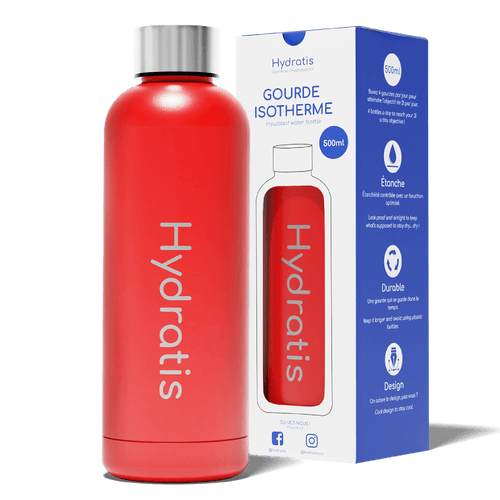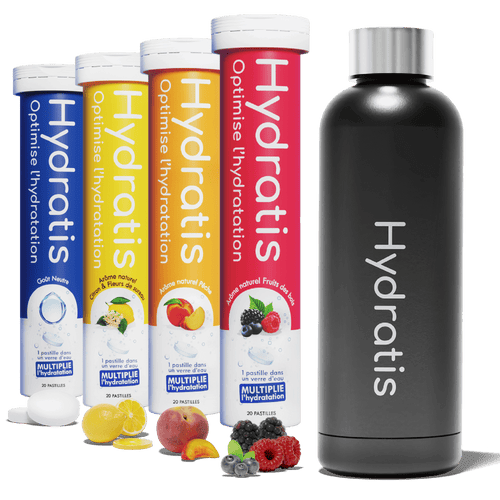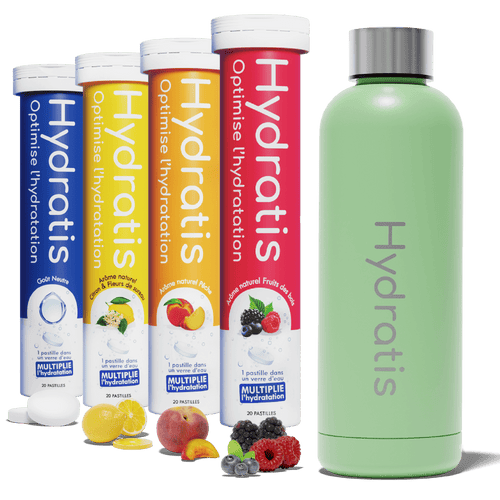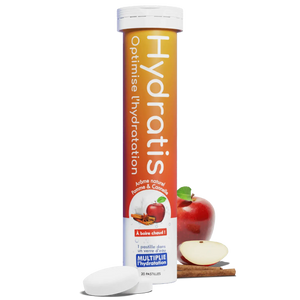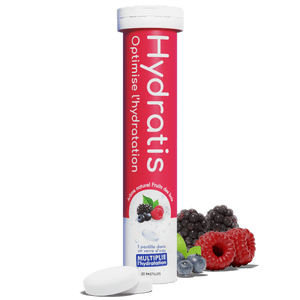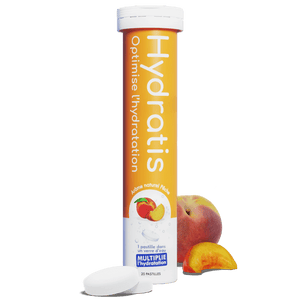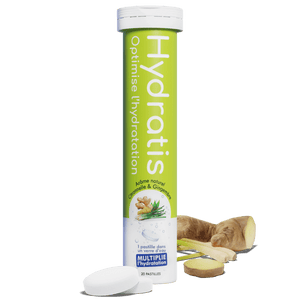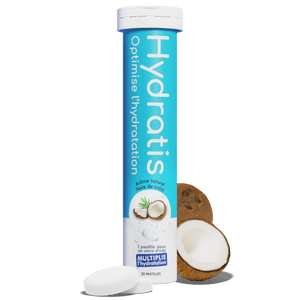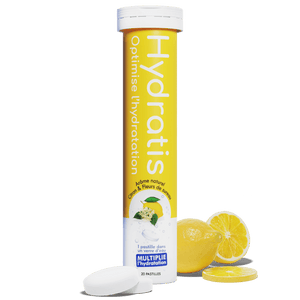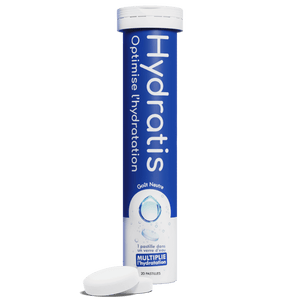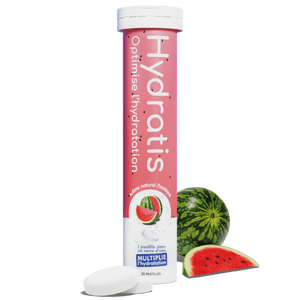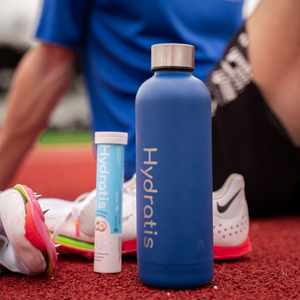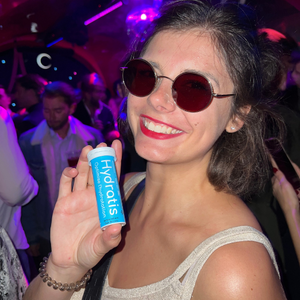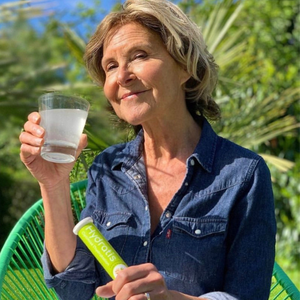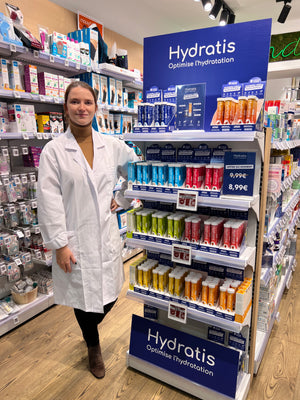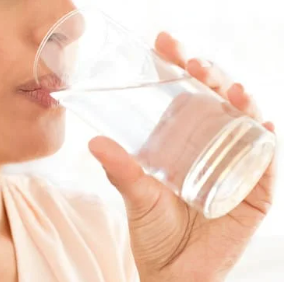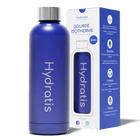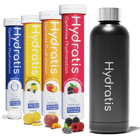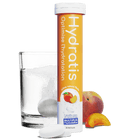
The Science of Rehydration Fluids: Hydratis Review
Rehydration solutions are drinks used to prevent dehydration but also in cases of mild dehydration.
In this article we will see how dehydration can occur in daily life as well as the benefits of rehydration solutions.
In your opinion, what are the causes of dehydration ?
Dehydration is characterized by a lack of water and mineral salts in the body that are essential for its proper functioning. It can be of multifactorial origin, such as the presence of disorders in the digestive system. Indeed, vomiting, which corresponds to the expulsion of stomach contents through the mouth. If vomiting is recurrent and if it occurs after a meal or drink, water and electrolytes have not had time to be absorbed by the body and therefore this can lead to a state of dehydration .
Gastroenteritis can also cause dehydration. During a gastro, there is an imbalance in the intestinal flora generally causing diarrhea. We speak of diarrhea when there is an increase in the frequency of stools (more than 3 stools in 24 hours) accompanied by a change in their consistency ranging from soft to liquid. Due to this, a large amount of water is eliminated with the stool.
Thus, in the event of diarrhoea, there are foods to avoid and others which are recommended to avoid aggravating the diarrhoea. It is therefore necessary to avoid all foods that promote intestinal transit such as the fibers which are contained in fruits (except in the form of compote) and vegetables. However, certain fruits and vegetables are recommended during diarrhea, such as bananas or carrots. It is also necessary to avoid, or even proscribe fatty and spicy foods, but rather to favor vegetable fats and lean meats such as poultry. Starchy foods (rice, pasta, potatoes) are beneficial because they have a constipating effect.
During strong heat and heat wave, there is a rise in body temperature. However, our body must remain at a constant temperature, for this the human body activates the mechanism of perspiration which allows it to be cooled. This perspiration corresponds to the excretion of water and electrolytes on the surface of the skin, which during evaporation makes it possible to lower the body temperature. Thus, during strong heat and heat waves, perspiration is stronger than in normal times and this generates a significant loss of water which can lead to dehydration. The same is true when practicing a moderate to intense sports activity.
Dehydration can also occur the day after a slightly too drunk evening because the elimination of alcohol by the body leads to a significant loss of water.
All these phenomena are therefore at the origin of the loss of water and electrolytes essential to the proper functioning of the human body, which can go as far as a state of dehydration. It is therefore necessary to hydrate well and not wait to be thirsty because this is already a sign of dehydration. It is essential to know how to recognize the symptoms of dehydration which are intense thirst, a decrease in the quantity of urine, a dry mouth and tongue, dry skin, fever, headaches or dizziness. If symptoms persist, a doctor should be consulted.
How to rehydrate well?
To prevent dehydration, there are a few rules including drinking about 2 liters of water a day and adapting to heat and / or sports.
However, there are drinks which allow better absorption of water and which make it possible to provide the lost mineral salts. Among these are oral rehydration solutions (ORS) which are made up of electrolytes (sodium, potassium, chloride, etc.) and sugar (such as glucose) and are used to prepare a solution to treat dehydration by optimizing the absorption of water by our body.
ORS are part of the essential medicines of the WHO and are used in particular in infants and young children to prevent severe dehydration during diarrhoea. Thus, ORS “ make it possible to save millions of lives in the world ” according to the WHO and make it possible to reduce “ by 33% the need for intravenous solutions ” which are used in first intention in the hospital to rehydrate.
The WHO has therefore given recommendations in terms of hydration and rehydration, especially during diarrhoea .
“ Main measures for treatment:
● Rehydration : with oral rehydration salts (ORS) in case of moderate dehydration or in the absence of signs of dehydration. ORS is a solution of pure water, salt and sugar. Each treatment costs just a few cents. ORS is absorbed in the small intestine and compensates for water and electrolyte losses in the stool.
● Rehydration: intravenously in case of severe dehydration or shock.
● Zinc supplements: they reduce the duration of the diarrheal episode by 25% and the volume of stools by 30%.
● Nutrient-rich foods: the vicious cycle of malnutrition and diarrhea can be broken by continuing to give nutrient-rich foods, including breast milk, during a diarrheal episode and by providing nutritious foods, including exclusive breastfeeding breast for the first 6 months of life, to children when they are healthy.
● Consultation with a health worker, especially for the management of persistent diarrhoea, when there is blood in the stool, or if there are signs of dehydration.”
Your Hydratis opinion on ORS
Hydratis lozenges are based on the principle of ORS. Indeed, they are composed of electrolytes (magnesium, potassium, chloride, zinc, manganese, sodium chloride) and dextrose which is a sugar and thus allow better absorption of water by the body by constituting an important contribution. in electrolytes.
As the elderly are among those most at risk of dehydration, there is a specific “senior” range that comes in the form of a sachet. These pellets and sachets can thus be used to prevent dehydration in everyday life.
In conclusion, dehydration can be suffered by everyone if water intake is not consistent with needs. Thus, ORS are your allies to prevent dehydration on a daily basis or even when the first symptoms appear because they allow better absorption of water and they constitute a substantial contribution in mineral salts allowing to avoid the appearance of 'a lack.
